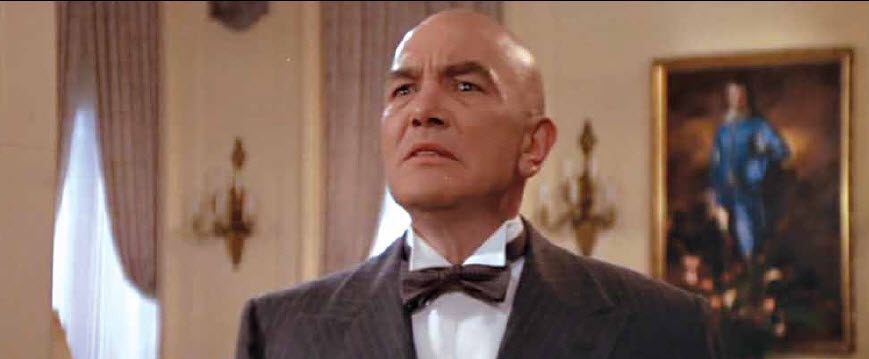Is Donald Trump Oliver Warbucks?
 By: Rosemary Dewar
By: Rosemary Dewar
As cheeky as it sounds, it is quite accurate. Donald Trump is Oliver Warbucks with very few exceptions. The entire cast of the film Annie may take this as an insult, but they shouldn’t. In 1982 Annie was a smash hit, and the ideals of diversity, self-determination, family, and American exceptionalism are affirmed throughout the film. Oliver Warbucks is a patriarch of sorts. He is loud, confrontational, and stubborn, while surrounding himself with some highly competent people. He trusts them with his life, no matter their gender or ethnicity. Donald Trump is all those things with the exception of his previous open philandering, tariff hiking, and infrastructure plan. Like it or not, the parallels are entertaining and inspire reflection.
Our introduction to Oliver Warbucks is astringent. Soon after Annie has been plucked out of poverty and carried to his estate, Warbucks’ arrival is met with strict attention and snappy energy. His secretary, Grace Farrell, begins listing off the provisos of the day, and says, “President Roosevelt called three times. He said it was urgent.” He responds, “Everything’s urgent to a Democrat.” Much hasn’t changed from the mid-1930s, in that regard.

Annie has some trouble acclimating to Warbucks’ estate and can’t sleep. She runs to Oliver’s office while the team is working well into the night. Annie’s dog, Sandy will not stop barking. Suddenly a bomb is thrown into the office. A man is captured by Sandy while Punjab and Asp subdue him. Annie asks, “Who’d want to kill Mr. Warbucks?” Grace Farrell replies, “The Bolsheviks. He’s proof that the American system works, and the Bolsheviks don’t want anyone to know.” Now, compared to dealing with Antifa, the constant altercations promoted by the Social Democratic movement is difficult to ignore. President Trump, his staff, and his supporters often are met with animus and verbal harassment.
As the story continues, once Annie has warmed the heart he always had, Oliver wishes to adopt her. Annie is grateful, but refuses for the moment, in order to find her birth parents. In an effort to help, Warbucks finally has a meeting with President Roosevelt and takes Annie with him. Warbucks arrives at the White House in a private helicopter. President Roosevelt says, “Aren’t Republicans ostentatious?”
While President Roosevelt attempts, again, to sell The New Deal, Warbucks stops him by saying, “The New Deal is badly planned, badly organized, and administered. You don’t think your programs through. Think what you’re going to do to the economy in the long run!” Roosevelt replies, “I want to feed them and pay them. Not much, but enough so they can be proud to be Americans.” Warbucks responds, “It’s mistaken foolishness. Big-hearted and empty-headed…Who’s going to run it?” Roosevelt says, “I was hoping you would.” Well, Donald Trump didn’t just “run a program,” he decided to run the whole country by becoming president. Could you imagine how better off we’d be if Oliver Warbucks was President during the Great Depression instead of FDR? It would have been marvelous.
Not an ill word was shared between FDR and Oliver Warbucks, and they committed to find a way to work together. Could you imagine Annie’s life if Oliver never made his millions? She’d be stuck in a fatherless, motherless hole, and oppressed by a bitter woman. The entire scenario would have been disastrous.
Because President Trump is combative, boisterous, and unseemly, our culture is doing everything within its grasp to make certain he irrevocably fails. I could not imagine a drearier fate for our nation. If Oliver Warbucks can manage to do some good by the people around him, can we not be inspired to do the same with the few people around us? Although President Trump’s presentation is not as polished and appropriate as I would prefer him to be, I can muster gratefulness for what he has been able to accomplish thus far. President Trump ought to take a few more economic cues from Oliver Warbucks. Other than that, Trump should avoid failure at the hands of his foes in any way he can. His effectiveness not only depends on it, it demands it.
For some, I may have ruined this musical by making this comparison. As for me, I can’t help but observe the similarities, lift up my chin, and grin.
By: Rosemary Dewar